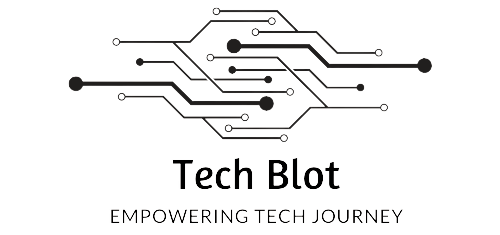Top 10 Plessner coaching in Lutherstraße 2 34327 Körle coaching centers offer a diverse range of services, from personal development to professional guidance, all set in a serene environment conducive to growth and self-discovery. In this article, we’ll delve into the top 10 Plessner coaching in Lutherstraße 2, 34327 Körle, each offering a unique approach to coaching and fostering personal and professional development.
1. Existential Coaching
Existential coaching is rooted in existential philosophy, which focuses on the individual’s search for meaning, freedom, and responsibility in life. Coaches using existential techniques help clients explore fundamental questions about their existence, values, and purpose. Through reflective dialogue and deep inquiry, clients gain insights into their motivations, fears, and aspirations. Existential coaching encourages clients to embrace their freedom to choose and take responsibility for their decisions, fostering a sense of empowerment and authenticity.
2. Phenomenological Coaching
Phenomenology, a philosophical approach emphasizing the study of individual experiences and perceptions, informs phenomenological coaching. Coaches using this technique guide clients to explore their subjective experiences without judgment or preconceptions. By focusing on the here-and-now, clients develop a clearer understanding of their thoughts, emotions, and behaviors. Phenomenological coaching encourages clients to engage fully in their experiences, leading to heightened self-awareness and improved decision-making capabilities.
3. Gestalt Coaching
Gestalt coaching integrates principles from Gestalt psychology, emphasizing awareness of the present moment and the holistic nature of human experience. Coaches using Gestalt techniques encourage clients to explore their thoughts, emotions, and physical sensations in the context of their environment. Through experiential exercises and creative experimentation, clients become more attuned to their internal processes and relational dynamics. Gestalt coaching supports clients in integrating fragmented aspects of their self, fostering personal growth and enhanced self-expression.
4. Narrative Coaching
Narrative coaching utilizes storytelling and narrative techniques to help clients explore and reshape their life stories. Coaches using this approach recognize that individuals construct their identities through narratives that shape their beliefs, behaviors, and aspirations. By examining and reframing personal narratives, clients can uncover limiting beliefs, identify strengths, and envision new possibilities for their future. Narrative coaching empowers clients to rewrite their stories, enabling them to align their actions with their values and aspirations.
5. Socratic Questioning
Socratic questioning, derived from the Socratic method of philosophical inquiry, is a powerful coaching technique for promoting critical thinking and self-reflection. Coaches using Socratic questioning facilitate dialogue by asking probing questions that challenge clients’ assumptions and encourage deeper exploration of their beliefs and perspectives. This technique helps clients clarify their thoughts, uncover underlying motivations, and consider alternative viewpoints. Socratic questioning fosters intellectual curiosity and enhances clients’ ability to make informed decisions aligned with their goals and values.
6. Positive Psychology Coaching
Positive psychology coaching draws from the field of positive psychology, which focuses on strengths, resilience, and well-being. Coaches using positive psychology techniques help clients identify and leverage their strengths to overcome challenges and achieve goals. By fostering a positive mindset and emphasizing gratitude, optimism, and resilience, positive psychology coaching enhances clients’ overall well-being and satisfaction with life. This approach encourages clients to cultivate positive emotions, build meaningful relationships, and pursue activities that contribute to their flourishing.
7. Cognitive Behavioral Coaching
Cognitive behavioral coaching integrates principles from cognitive behavioral therapy (CBT), a widely-used therapeutic approach for addressing dysfunctional thought patterns and behaviors. Coaches using CBT techniques help clients identify and challenge negative beliefs and behaviors that hinder their progress. By promoting cognitive restructuring and behavioral modification, cognitive behavioral coaching empowers clients to develop more adaptive thinking patterns and effective coping strategies. This approach supports clients in achieving specific goals and improving their overall mental health and well-being.
8. Mindfulness Coaching
Mindfulness coaching incorporates mindfulness practices, rooted in Buddhist philosophy, to enhance awareness, focus, and emotional regulation. Coaches using mindfulness techniques guide clients in cultivating present-moment awareness and non-judgmental acceptance of their thoughts, emotions, and sensations. Through mindfulness meditation and mindful living practices, clients develop greater clarity, resilience, and inner peace. Mindfulness coaching empowers clients to manage stress more effectively, improve interpersonal relationships, and make intentional choices aligned with their values.
9. Solution-Focused Coaching
Solution-focused coaching emphasizes practical solutions and strengths rather than dwelling on problems or obstacles. Coaches using solution-focused techniques help clients identify their desired outcomes and explore strategies that have worked in the past. By focusing on achievable goals and building on existing strengths, solution-focused coaching promotes optimism and motivation. This approach encourages clients to envision a preferred future, take proactive steps towards their goals, and celebrate progress along the way.
10. Transpersonal Coaching
Transpersonal coaching integrates spiritual and transcendent experiences into the coaching process, acknowledging the interconnectedness of mind, body, and spirit. Coaches using transpersonal techniques help clients explore their spiritual beliefs, values, and experiences to cultivate deeper meaning and purpose in life. By integrating mindfulness, meditation, and visualization practices, transpersonal coaching supports clients in accessing higher states of consciousness and personal transformation. This approach fosters holistic well-being and encourages clients to align their personal growth with their spiritual aspirations.
Conclusion
Coaching techniques inspired by philosophical and psychological insights offer valuable frameworks for personal growth, self-discovery, and transformation. Whether drawing from existential philosophy, positive psychology, or mindfulness practices, these techniques empower individuals to navigate life’s challenges, clarify their values, and achieve meaningful goals. By embracing these diverse approaches, coaches can tailor their methods to meet the unique needs and aspirations of their clients, fostering deeper insights, resilience, and a sense of purpose in their journey towards personal and professional fulfillment.

